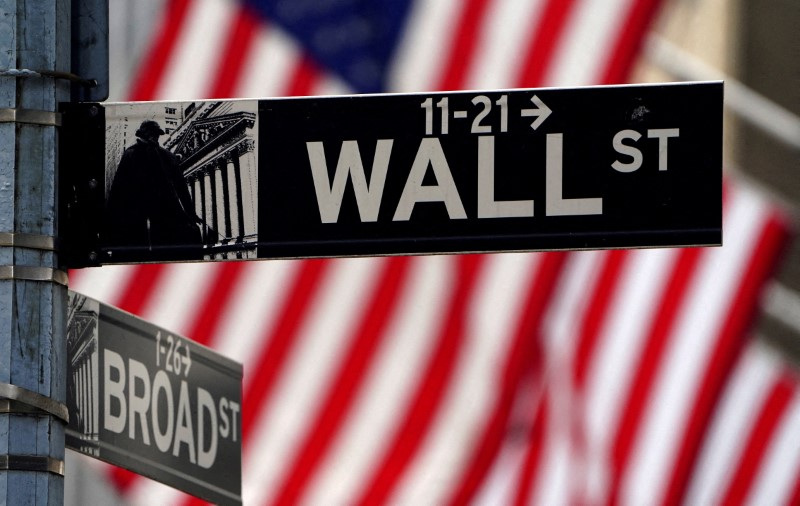By Lewis (JO:LEWJ) Krauskopf
NEW YORK (Reuters) -Investors will focus in the coming week on whether inflation trends can help sustain the record-breaking stock rally that has received a boost from Donald Trump's victory in the U.S. presidential race.
The benchmark S&P 500 surged to an all-time high and hit the 6,000 level for the first time on Friday, as expectations of tax cuts and looser regulations under Trump helped lift the appetite for equities.
A reassuring economic outlook from the Federal Reserve, which delivered a widely expected 25 basis point rate cut on Thursday, also helped boost sentiment. The central bank's ability to keep cutting rates, however, will be tested by whether incoming data shows inflation continuing to moderate.
The Nov. 13 consumer price index report needs to "confirm that notion that inflation continues to head in the right direction," said Art Hogan, chief market strategist at B Riley Wealth.
Investors believe Trump's proposals, in particular higher tariffs, could push up consumer prices. Meanwhile, U.S. data has been stronger than expected, with a recent report showing the economy grew at a solid 2.8% pace in the third quarter.
CPI for October is expected to come in at an annual pace of 2.6%, according to economists polled by Reuters. That would be a slight uptick from the 2.4% pace in September, which was the smallest gain since 2021, but well below the four-decade highs reached in 2022 that led the Fed to hike interest rates.

More robust inflation could further alter projections for the Fed's rate-cutting path, after expectations changed with Trump's election victory. Fed funds futures show investors are now expecting rates to decline to about 3.7% by the end of 2025 from the current 4.5%-4.75% range, about 100 basis points above estimates in September.
Expectations of financial easing have helped boost stocks this year, along with solid corporate profits and excitement over the business potential of artificial intelligence. Michael Reynolds, vice president of investment strategy at Glenmede, said the neutral level for the Fed funds rate was about 3%, "and we ultimately expect the Fed to stop short of neutral." "We ultimately think that they do take that shallow path because inflation is still a risk," Reynolds said. "We just got through a period of well-above average inflation. Historically, that's come in waves." Adding to that risk is Trump's economic agenda that could juice inflation along with growth during his presidency. "We're a long way from knowing specifics around either tax policy or trade policy, but those are both on the table and will undoubtedly weigh into the Fed's calculus as they look ahead from here," said Jim Baird, chief investment officer with Plante Moran Financial Advisors. Investors also are continuing to adjust to the new political landscape, after big moves this week in the stock market's so-called "Trump trades." The small-cap Russell 2000 was up 8% on the week, with smaller, domestically focused companies expected to benefit from Trump's plans to increase tariffs on imports. The S&P 500 banks index was up about 7% with lenders poised to benefit from the Republican's expected efforts to slash regulations. The initial market reactions will be tested as Trump fleshes out his policy aims and starts to name political appointments. "Markets have started to digest Trump's victory," analysts at UBS Global Wealth Management said in a Thursday note. "As more detailed policy proposals emerge from the Trump transition team, investors should brace for further swings ahead."